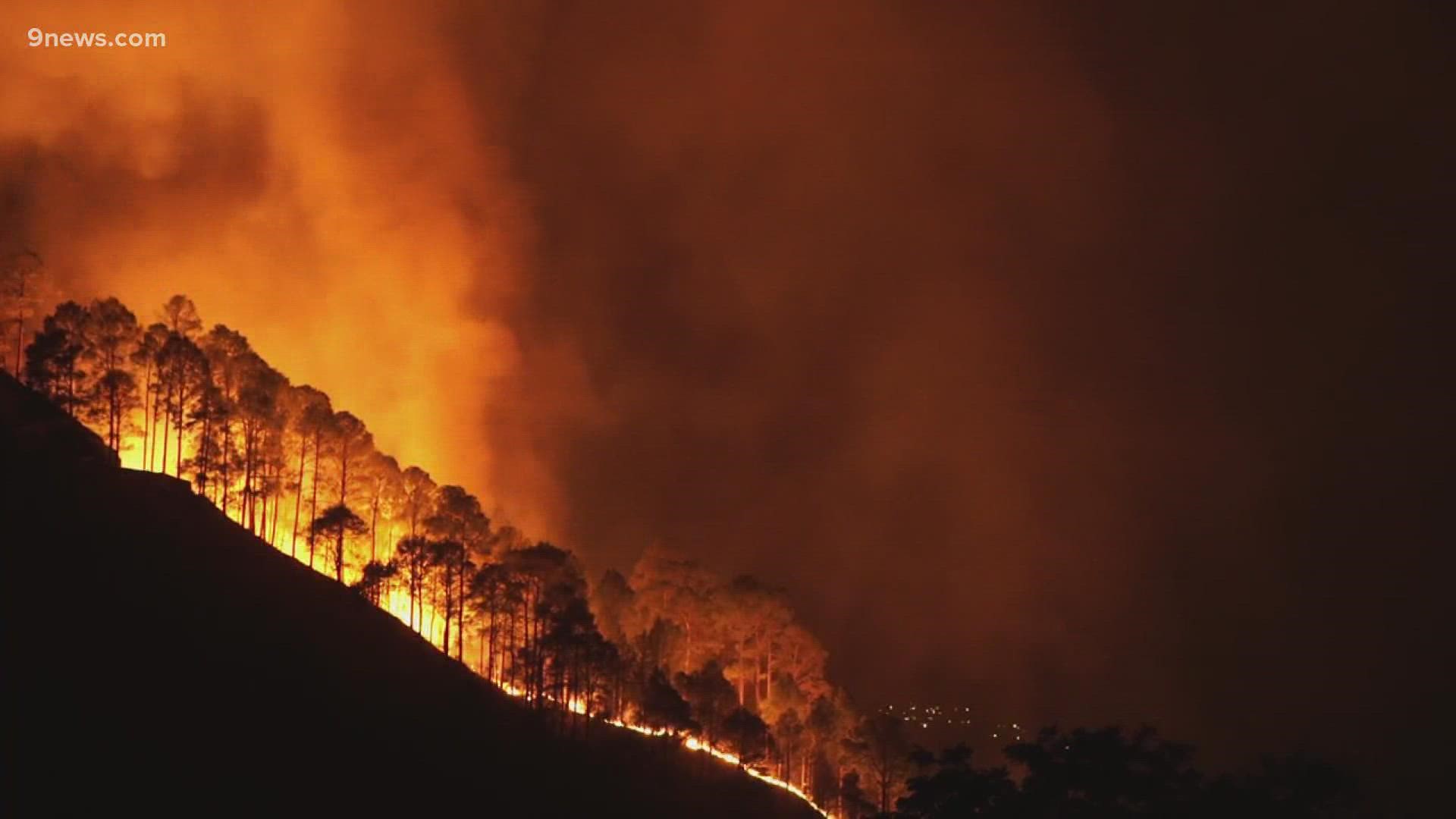BOULDER, Colo. — Wildfires typically slow down at night because of the cooler air and the higher humidity. Firefighters call it nighttime humidity recovery. The vegetation gains back some of the moisture lost to transpiration during the day.
But a new study conducted by scientists from the Cooperative Institute for Research in Environmental Sciences (CIRES) at the University of Colorado found that the wildfire fuels are not recovering at night as well as they used to, and that our nights are hotter and drier than ever before.
“It provides an explanation about why our fires are getting more extreme,” said Jennifer Balch, lead author of the study and director of Earth Lab, a branch of CIRES. "
The study identifies a threshold that Balch calls flammable nights, when the nighttime weather conditions are just as conducive to wildfire spread as the daylight hours.
She said there is an average of seven more flammable nights per year worldwide, and 11 more in Colorado and the rest of the western U.S. That’s a 45% increase since 1979.
The measurement used to determine that threshold is called vapor pressure deficit.
“It’s a metric that captures both temperature and humidity together," said Balch. "It essentially measures how much moisture the atmosphere is sucking out of fuels.”
She said the nighttime warming trend means wildfires can last longer, spread faster and grow larger.
It also raises concern for fire crews that she believes are already overworked.
“Because our firefighters are not getting a break at night, they’re having to deploy new tactics, and really challenging tactics in the middle of the night when fires are acting extreme," said Balch. "We’re just asking too much of our firefighting community.”
She also said the nighttime warming is a result of greenhouse gases entering the atmosphere from the excessive burning of fossil fuels by humans.
“This is climate change here and now in Colorado, it’s not out in the future, it’s happening right now,” said Balch. "Fire is so responsive to warming temperatures. It takes just a little bit of warming to lead to a lot more burning."
SUGGESTED VIDEOS: Wildfires in Colorado

